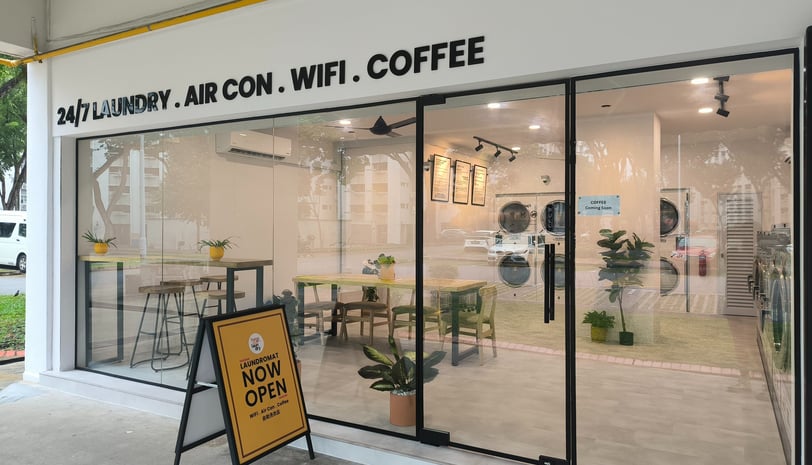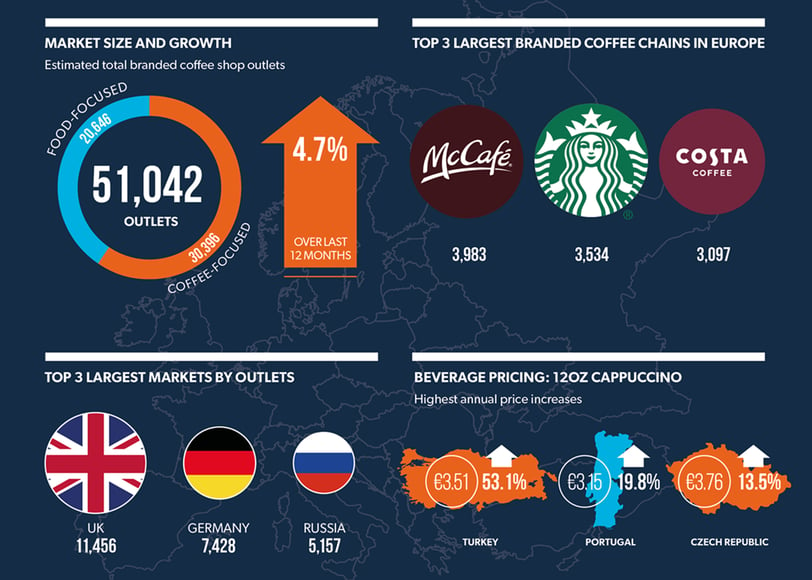The Coffee Shop of the Future? In a Laundromat
Why hybrid spaces are the future of coffee business.
COFFEE MARKETGROWTH
Why hybrid spaces are the future of coffee business. Innovation, experience, and community: the new competitive advantage for baristas and roasters.


Source: Hangout Laundry: https://hangoutlaundry.sg/
In Singapore, you can wash your clothes, work on your laptop, listen to a DJ set, and drink quality coffee, all in the same place. Hangout Laundry isn't a crazy experiment, but a perfect example of what happens when you have the courage to rethink spaces. Places where coffee isn't the only protagonist, but the pretext for creating connection.
And while hybrid formats like this are blooming all over the world, the old paradigm of the classic café is wobbling. Customers have changed. They want experiences, not just consumption. And they want to spend their time outside home in meaningful ways. Whether it's doing laundry, working, reading, or chatting with a stranger.
In a world so saturated with stimuli and options, it's the experience that makes the difference. And those who don't understand this risk falling behind.
Spaces, not just tables: the real problem in the coffee business
Talking about quality, origin, price, extraction method has become the ABC. But today it's not enough. The coffee entrepreneur faces an epochal change:
The product is no longer the focus—it's the context that makes the difference.
The problem is that many industry professionals haven't noticed this paradigm shift. They continue to invest in perfect roasting, new packaging, competitive pricing... but ignore what really tips the scales.
Today, coffee is often the pretext for something else: socializing, relaxing, meeting people, experiencing a welcoming space. The problem is that too many roasteries and baristas still think only in terms of product, margin, costs. Not in terms of relationship, community, and shared space. And this is where they're missing the train.
The approach of the café as a simple point of sale is obsolete. A change of vision is needed: stop thinking of the café as a place of service and start seeing it as an experience platform. Only then can you remain relevant in a rapidly transforming market.
When coffee becomes experience: the consequences of ignoring change
Those who remain anchored to the old business model risk a lot. The data speaks clearly: according to World Coffee Portal, the European out-of-home coffee market grew by 4.7% in 2024, the highest rate in five years. But this growth doesn't concern those who merely serve good espresso: it concerns those who have been able to offer experiences.
People are hungry for authentic places. Spaces where they can work, socialize, feel part of something. Hangout Laundry, with its mix of laundromat, coworking, and café, isn't an anomaly. It's a powerful signal. As are the Australian coffee parties, where DJ sets blend with the aroma of filter coffee and coffee cocktails. Those who create these spaces have understood a simple thing:
Source: World Coffee Portal, Project Café Europe 2025
the value no longer lies just in the product, but in the emotional context in which it's consumed.
Ignoring all this means standing still while the market moves. It means seeing the average check decrease, losing customers without understanding why, and above all, losing appeal to new generations. Because they, more than anyone, seek experiences, authenticity, meaning.
The coffee world needs to stop thinking in terms of commodity. And start thinking in terms of community.
Strategy, identity, and value: the response to evolve
What to do, then? A new approach is needed, more strategic and value-oriented. Real INNOVATION is needed, which doesn't mean changing blends every three months, but rewriting the way we create value for customers. The point is: do we want to sell cups or do we want to build memorable experiences?
To do this, you must first understand your WHY. Why do you do what you do? What do you want your customers to feel? What difference do you want to make in their day? From here, everything else is built: the physical space, the atmosphere, the offering, the communication. A café isn't just a café. It can be a gallery, a living room, a laboratory, a square. And a roastery isn't just a supplier. It can become a guide, a partner, a multiplier of opportunities.
Here are 5 actionable tips for roasters:
1. Don't sell "quality." Offer value and transparency. Tell the story of the supply chain, explain the origin, show consistency. Modern coffee entrepreneurs need to move beyond generic quality claims and build narratives that connect emotionally with customers.
2. Build from the ground up. Start with a base offering and add traditional services (training, equipment, assistance) as modules of real value. Package your expertise in ways that solve specific problems for your clients.
3. Expand your offering with digital content and tools. Provide value online too, with materials that help baristas grow. Create digital resources that position you as a thought leader, not just a product supplier.
4. Develop a consultation approach. Position yourself as a strategic partner, not just a bean supplier. Help your clients understand their customer base and develop coffee programs that align with their brand identity.
5. Focus on relationship-building. In an increasingly digital world, personal connection becomes your strongest differentiator. Create events, masterclasses, and experiences that strengthen your community.
And 5 for baristas:
1. Start with WHY. Create a space with purpose. Deliver an experience, not a transaction. Your 'why' should be evident in every aspect of your business, from the layout to the service style.
2. Cultivate your brand, especially digital. A logo isn't enough. You need a recognizable, authentic, and coherent identity. Your online presence should tell the same story as your physical space.
3. Build a community. Gather contacts, communicate personally. Transform customers into fans. Community-building happens through deliberate action – events, recognition programs, and social initiatives.
4. Design for multiple use cases. Consider how your space can serve different needs throughout the day. A morning coffee spot might transform into an afternoon workspace, an evening social hub, or a weekend event venue.
5. Embrace the hybrid model. Partner with complementary businesses or add services that extend your value proposition. What else could you offer that aligns with your core values and attracts your ideal customers?
The new competitive advantage
The future isn't in what you sell, but in how you make people experience it.
Coffee remains central, of course. But the winners will be those who can transform it into a vehicle for creating human connections, authentic places, and relationships that last over time.


